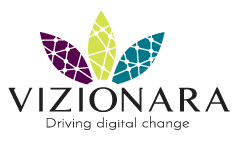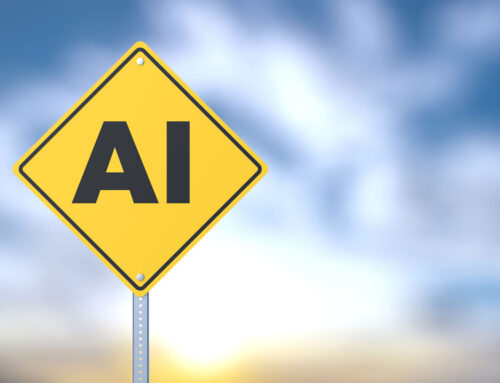When I spoke to a group of elementary and middle schoolers to find out what they knew about AI and IT, I got a mix of responses that was both amusing and enlightening. It ranged from AI is “cool,” “scary,” “an online brain,” to it is “TAKING OVER THE WORLD.” It also helps you “generate funny pics of chickens” (which admittedly is quite fun!). They viewed IT as “a place you go in school if you need a new iPad, keyboard or case,” and those people that fix iPads just may be the folks who “create AI.”
These candid insights reveal a blend of wonder, curiosity, and just enough apprehension about the fundamental technology forces in our lives today. They also present an opportunity, since these kids are the potential workforce members and innovators of the future and it’s our responsibility to help them learn more about technology and its implications.
Remember the tech of your childhood?
You may look back with amusement on the tech marvels of your childhood. Depending on your age, that might be the first personal computers, VCRs and home video game consoles in the seventies. Remember when the fax machine was a crucial communication tool? And the screech of a dial-up modem? Then the launch of the internet, CD-ROMs and floppy disks in the eighties. We moved on to text messaging, Mp3 players, the flip phones and witnessed how Microsoft and Google further changed our world in the nineties.
As I chuckled thinking back to some of these milestones I lived through, I wondered what kids today think of the much more daunting array of technology that surrounds them. Do they underestimate the breadth of the tech industry? Are they as confused about AI as most adults? I decided to try and find out.
In an unscientific quest, I started by polling more than 75 kids in my day-to-day activities to hear what they had to say. As usual, the kids were incredibly insightful, thought-provoking and, most of all, delightfully funny in what they had to say. Here are some of the quotes I captured that might brighten your day and inspire a lighter perspective on an often all-too-serious take on tech.
AI is both cool and sinister
As with many adults, asking kids “what do you know about AI,” drew a wider range of responses citing benefits, shortcomings, suspicions and downright fear. They tended to mimic many of the concerns we see in the industry, such as plagiarism, privacy rights and job displacement.
- “I know it stands for artificial intelligence which is about robotics and developing how smart they can get, which scares me for the earth.”
- “AI is a thing that people use to generate stuff, but I think it is dangerous.”
- “My thoughts about AI are it can’t possibly be better than humans.”
- “AI helps that dumb robot that roams around Stop‘n Shop and is always in the way.”
- “It really helps me, but it really does not teach you, it just gives you the answer.”
- “I think AI is cool because you can use it to help you write. There is so much more stuff that we can do.”
- “It’s nothing but an on-line person.”
- “I personally do not like AI because I know humans were made to do these things and I think the people who would take their place just don’t want to do the work.”
- “I think it’s cool but a lil scary.”
- “AI is fast at everything.”
- “AI is something that doesn’t have a real consciousness, but it can still act like it does. I think it is fine as long as it’s not abused for bad purposes.”
Older respondents offered a more pragmatic view of AI. One high schooler noted that, “Chat GPT helps me write much better papers and sounds like I know what I’m doing.” While a college student lamented that, “AI helped so much, but of course, now they found a way to tell how much of our papers were generated by AI.”
IT: A kids’ perspective
When asked “what do you know about IT,” some kids said they didn’t know what it is or what the letters stand for. Others came up with their own creative interpretations of how to spell out the acronym:
- “IT stands for ‘intelligence technology’ which means they help people with their technology and fix things.”
- “It is ‘intivisal tech’ and helps with tech.”
- “I don’t know what IT stands for, but I think they create AI.”
Most kids described the narrow, break-fix scope of IT that many company employees tend to hold as well. In their case, that mostly meant keeping their beloved iPads up and running:
- “IT is when you need your iPad repaired or help with iPad.”
- “IT is computer help. IT does the fixing of computers.”
- “IT is good because in schools if you have a broken iPad, they could fix it, which makes it better, but it could be bad sometimes.”
Having someone in the family that works in IT didn’t seem to necessarily help with a definition: “Information technology, I think? I don’t know what they do, probably tech like electronics. My parents worked in IT. That’s all I know.”
And finally, one student had a more philosophical take on the question: “IT fixes electronics and my thoughts are they are useful but shouldn’t be needed because without devices the world, in my opinion, would be much better.”
My takeaway from this unscientific effort is that it’s our duty to encourage kids’ curiosity and foster their critical thinking skills so they will be successful in this digitally complex world where they will be the future users and creators of the next wave of tech. I also recommend that kids should be exposed to the many roles in the IT industry beyond fixing iPads, so they get a broader introduction to technology and career possibilities. Oh, and clearly, I am also grateful fax machines are no longer a key communications tool!
There are some actual studies being done on what kids think of technology. Here is one example: https://www.edweek.org/technology/what-kids-say-they-need-to-understand-how-ai-works/2024/03 What Kids Say They Need to Understand How AI Works, March 7, 2024
Denise Keller is a Principal Consultant at Vizionara.






